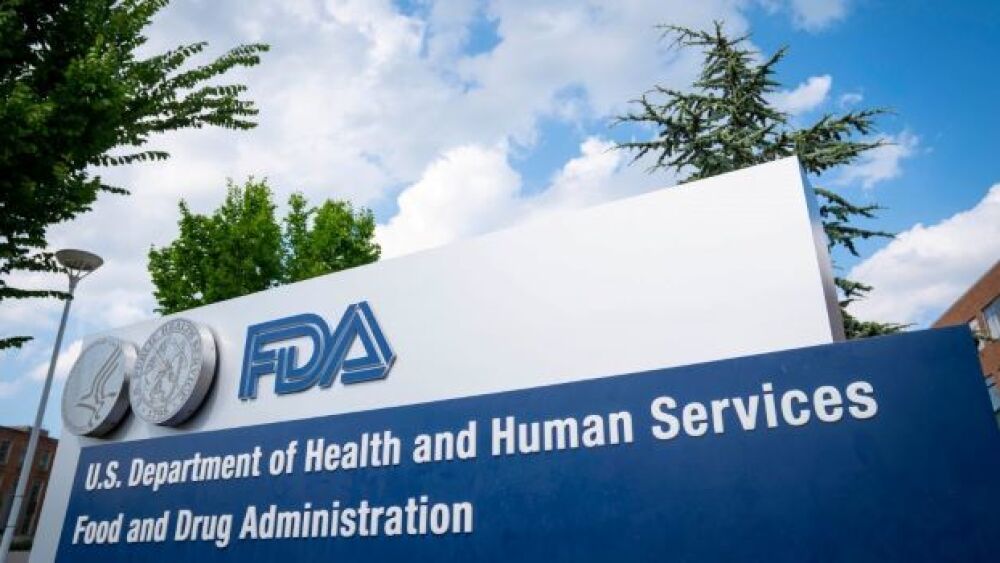The U.S. Food and Drug Administration announced they are investigating a possible death risk for TG Therapeutics’ Ukoniq (umbralisib).
Sarah Silbiger/Getty Images
The U.S. Food and Drug Administration announced it is investigating a possible death risk for TG Therapeutics’ Ukoniq (umbralisib). The drug is indicated for two types of lymphoma.
The FDA “determined that initial findings from a clinical trial evaluating Ukoniq to treat a related type of cancer found a possible increased risk of death in patients taking the medicine.”
Ukoniq is an oral inhibitor of phosphoinositide 3 kinase (PI3K) delta and casein kinase 1 (CK1) epsilon. PI3K-delta plays a role in supporting cell proliferation and survival, cell differentiation, intercellular trafficking and immunity. CK1-epsilon regulates oncoprotein translation. The drug is approved for adults with relapsed or refractory marginal zone lymphoma (MZL) who have received at least one previous anti-CD20-based treatment and for adults with relapsed or refractory follicular lymphoma (FL) who have received at least three previous lines of systemic therapy.
The indications were approved under accelerated approval based on overall response rate. The continued approval for these indications depends upon verification of clinical benefit in a confirmatory clinical study.
In September 2021, the company published results from an integrated safety analysis of the drug in patients with relapsed or refractory lymphoid malignancies. The data was published in Blood Advances.
At the time, Michael S. Weiss, chairman and chief executive officer, stated, “We are pleased that the integrated safety analysis of 371 patients treated with Ukoniq has been published in Blood Advances. We believe these data further support the differentiated safety profile of Ukoniq, the first and only PI3K-delta and CK1-epsilon inhibitor, which is now commercially available to patients with relapsed or refractory marginal zone lymphoma and follicular lymphoma.”
The FDA is letting patients and physicians know that it is re-evaluating the risk-benefit profile of the drug for its approved uses. It will continue to analyze the data from the Phase III UNITY clinical trial and says it may hold a future advisory committee meeting to discuss the findings and determine continued marketing of the drug. The regulator stated it “has also suspended enrollment of new patients in other ongoing clinical trials of Ukoniq while [the agency] continues to review the UNITY findings.” The FDA added that it will communicate its final conclusions and recommendations when it has completed the review or has more information to share.
The FDA is running an initial review of data from UNITY in patients with chronic lymphocytic leukemia (CLL). That study is looking at Ukoniq in combination with a CD20-targeting monoclonal antibody. The agency says the “results showed a possible increased risk of death in patients receiving the combination of Ukoniq and the monoclonal antibody compared to the control. Those receiving the combination of Ukoniq and the monoclonal antibody also experienced more serious adverse events than those in the control arm.”
UNITY was only conducted in CLL patients, but the FDA is concerned the safety signals may also apply to MZL and FL. The FDA also said clinical trials of other drugs in the same PI3 kinase inhibitor class have demonstrated similar safety problems.





